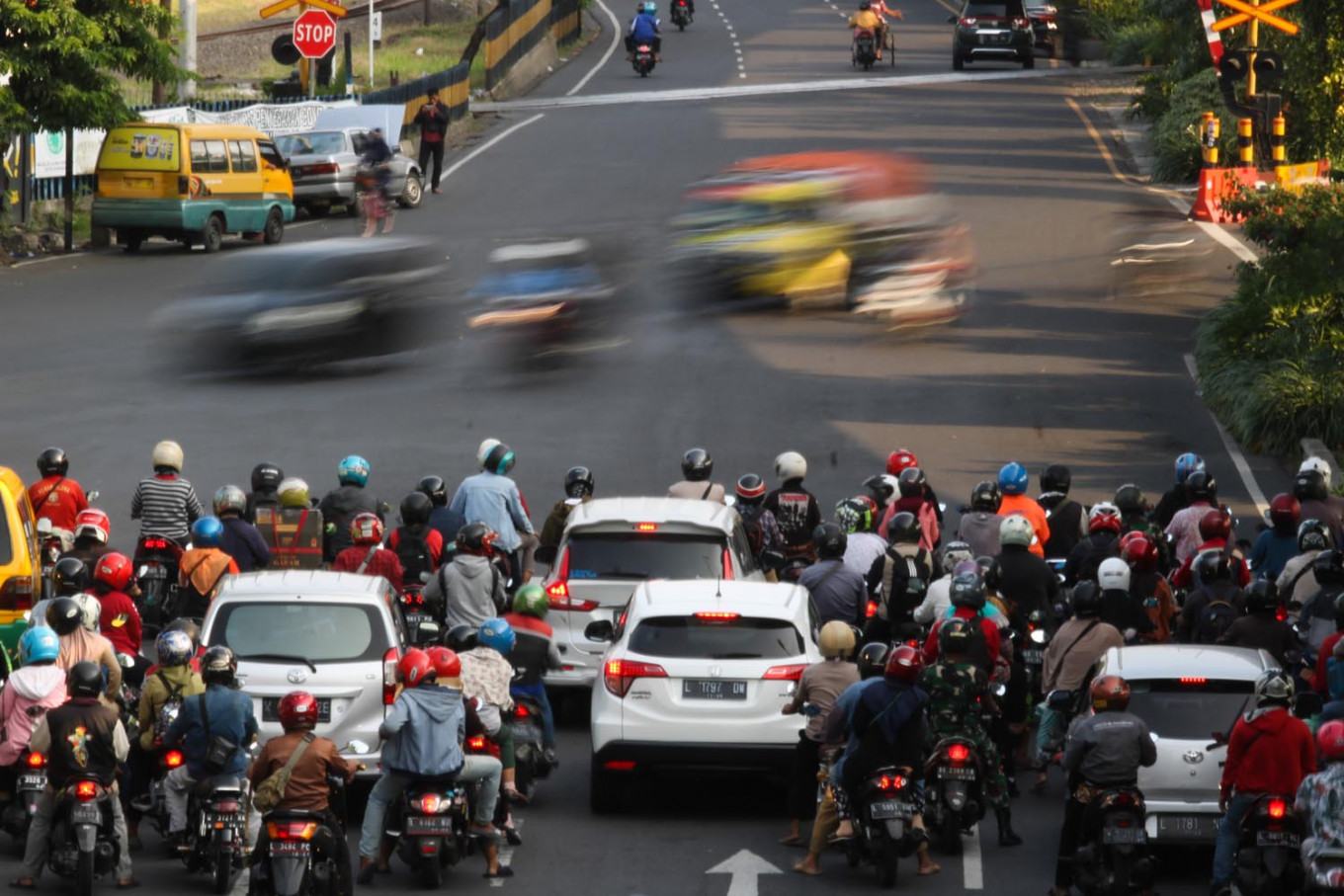Surabaya claims infections on downward trend
Change Size

S
urabaya, the capital of East Java, continues to defy calls to reinstate large-scale restrictions (PSBB), which were officially lifted earlier this month, despite the continued increase in confirmed COVID-19 cases in the city.
Home to some 2.8 million people, Indonesia's second largest city accounts for nearly half of East Java's more than 10,000 confirmed cases, emerging as a new epicenter of the COVID-19 outbreak following a surge of new cases starting from the end of last month.
Despite the steady rise in cases, Surabaya and its satellites cities of Sidoarjo and Gresik, decided to lift their PSBB measures on June 8.
Instead, the local administration has shifted its focus to reopening a number of sectors to keep the economy afloat, insisting that the latest numbers reflected a “downward trend” in the number of coronavirus cases recorded in the region.
“If we examine [the numbers], there has been a downward trend. Before, we used to [record] 200, 300 [new cases per day], but now it has gone down,” Surabaya Mayor Tri Rismaharini said during an online discussion held by the National Disaster Mitigation Agency (BNPB) on Tuesday.
The city recorded its highest one-day spike in new confirmed cases on May 21, when it recorded 311 new cases, followed by a similar surge on May 23, with 310 new cases.
But while the number of new daily cases has not reached such highs since, Surabaya has still recorded an average of around 100 new cases per day over the past two weeks.
Read also: As COVID-19 transmission rate soars, Surabaya urged to restore restrictions
Epidemiologist Windhu Purnomo from Airlangga University’s School of Public Health conveyed his skepticism over Risma’s claims, saying the mayor had only accounted for the number of confirmed cases recorded among registered Surabaya residents.
“I think [Risma’s statement] is incorrect, because the trend has shown no signs of declining anytime soon,” Windhu told The Jakarta Post on Tuesday.
He explained that other indicators of the outbreak – such as the fatality rate, reproduction rate (Rt) and attack rate – all showed the city was a high-risk zone, and that Surabaya residents remained highly vulnerable to infection, contrary to the mayor’s claim.
According to Windhu, Surabaya’s fatality rate currently stood at 7.8 percent, far higher than the national average of 5.6 percent, while the attack rate of COVID-19 in the region is 160, meaning that 160 in every 100,000 people have tested positive for COVID-19.
He said the city's Rt had fallen to 0.8 on June 17, which meant that one person infected with COVID-19 would spread the disease to less than one other person. If this Rt had been maintained, the outbreak in the city would have petered out, but it has since risen to above 1 again.
“It seemed to be the light at the end of the tunnel – if only we could have been more patient,” Windhu said.
He urged the Surabaya administration to issue and enforce stringent regulations to control people’s movements in a bid to break the chain of infection, saying it had been far too early to lift the PSBB measures.
Read also: Surabaya mayor feuds with East Java governor over mobile PCR labs
Risma, however, seemed to indicate that she would not reimpose citywide restrictions, saying only that she would shut down individual traditional markets, shopping malls, or restaurants if visitors or vendors tested positive for COVID-19.
She added that instead of locking down entire villages to conduct tests on the population, the administration would now carry out tests on certain communities that were deemed most vulnerable to COVID-19 transmission, she said.
“For instance, we have conducted mass testing on vendors and at restaurants around hospitals,” Risma added.
She said the administration had also reopened a number of public spaces considered crucial to the local economy, with new health protocols in place to minimize the risk of virus transmission.
As of Tuesday, Surabaya had recorded 4,771 confirmed COVID-19 cases with 359 deaths, while East Java has reported 10,115 cases and 741 deaths.









